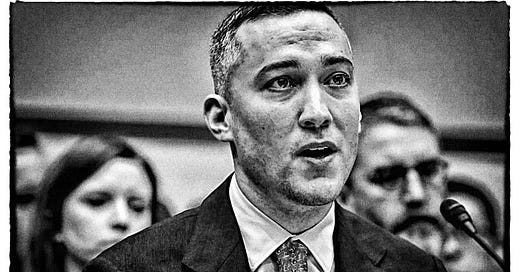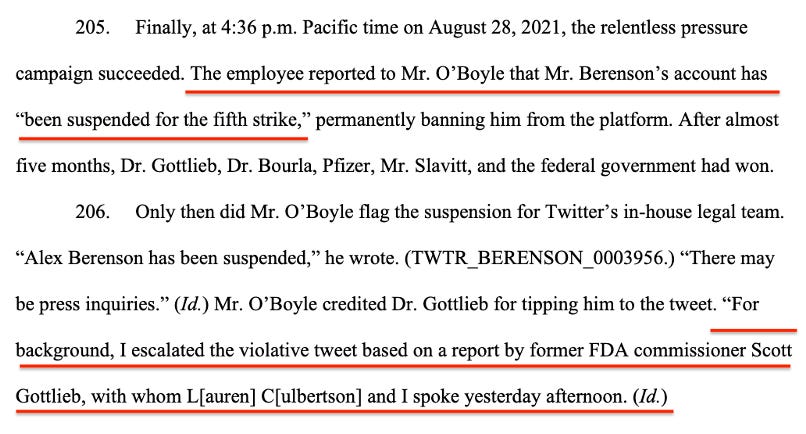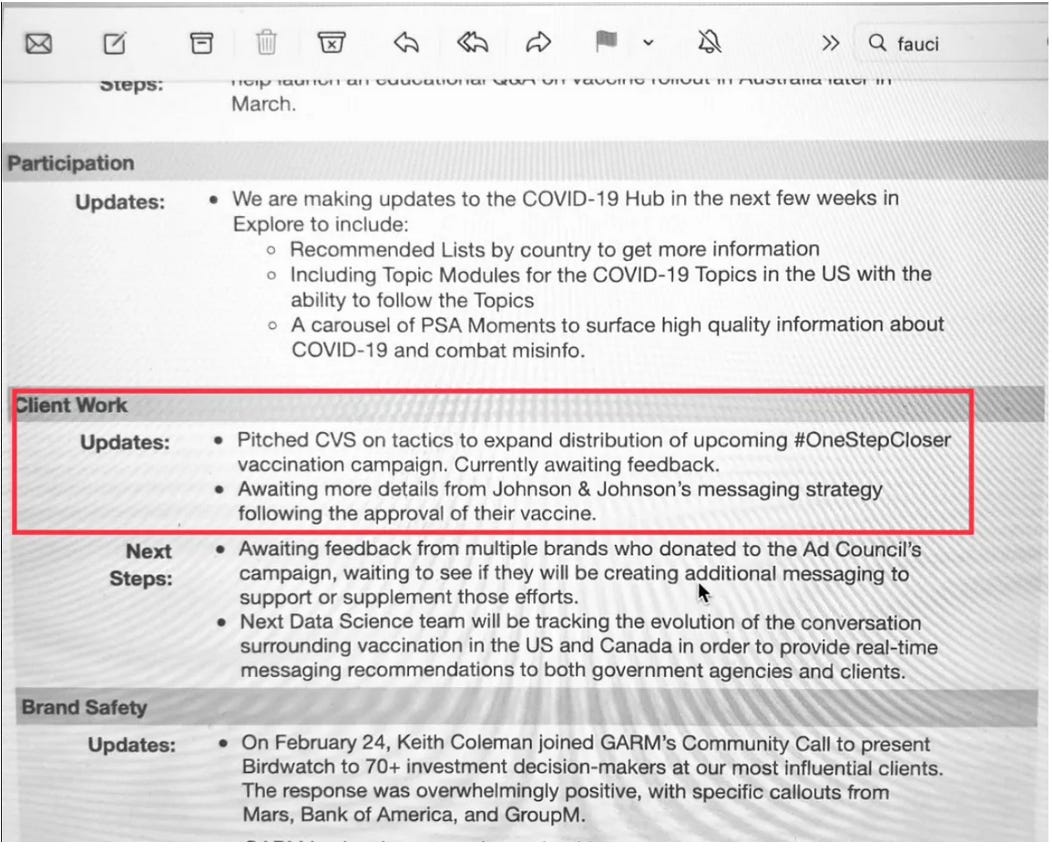Former Twitter Employee Yoel Roth Caught Lying to Congress
Another "disinformation expert" nabbed for spreading disinformation.
5 minute read
I missed this when it first came out, but reporter Alex Berenson released some dynamite information earlier this month about how he came to banned from X. To back up a bit, Berenson has been suing X since he was banned several years ago, alleging the White House worked behind the scenes with X employees to censor him.
In 2022, X reinstated Berenson’s account and he released documents showing that he was booted after the White House complained about his tweets criticizing the COVID vaccines. To be specific, Berenson pointed the finger at Andy Slavitt, a Democratic political operative who was working in the White House.
Berenson has also complained about Dr. Scott Gottlieb, the former FDA Commissioner under Trump. After leaving the FDA, Gottlieb joined the board of Pfizer, one of the COVID manufacturers, and he also complained to X about Berenson.
In the latest documents release, Berenson reported on internal X files given to him by Musk that show Gottlieb worked with a lobbyist at X to get him banned. Social media companies and their minions in the press have long alleged that companies have noble processes to ban people and that politics are not involved.
But Berenson found out what I and others have long been arguing: politics plays a role.
Suspicious, I hunted through old interviews of Yoel Roth, who ran the Trust and Safety group at X, and discovered he misled Congress during a heated hearing, claiming that lobbyists had no role in banning people.
So Roth lied. Here’s the proof.
It was difficult to track all the documents Berenson released, so I’m going to point to passages from his updated lawsuit against White House officials and Pfizer executives.
Several pages down in Berenson’s amended complaint, he points to a 2021 email from Scott Gottlieb (then on the board of Pfizer) to Todd O’Boyle, a lobbyist for X. That email shows Gottlieb passing along a complaint to O’Boyle about a Berenson tweet.
In the lawsuit’s next passage, Berenson notes that lobbyist O’Boyle pressured employees at X about Berenson’s tweet. Inside X and other social media companies, these complaints are supposed to be handled inside Trust and Safety units. Or so we are told.
You can see that the Trust and Safety employee then reported back to lobbyist O’Boyle that Berenson’s account had been suspended.
Again, we are told by social media companies that lobbyists are not involved with this process. But it gets more interesting because O’Boyle confirms this is lie. O’Boyle then notifies X’s lawyers that Berenson had been suspended and that he had escalated the process after speaking with Pfizer board member Scott Gottlieb.
X lawyers seem confused and tried to figure out how Berenson had been suspended.
A manager in Trust and Safety then emailed X’s lawyers “it looks like this was not an action taken by [site integrity], we’re investigating what happened.”
The following morning, X’s general counsel warned that the process for banning people had not been followed and Berenson should not have been banned.
As previously noted, that’s because the process had been “escalated” by X’s lobbyist O’Boyle.
I knew that lobbyists banning people had been denied multiple times in the media, so I started digging around through interviews Yoel Roth had given. Until Elon Musk showed him the door, Roth ran Trust and Safety at X and has always alleged in interviews that the process was fair and did not involve politics.
Then I landed on his testimony before Congress last year. Under oath, Roth denied that lobbyist were involved in banning people, something we now know is false.
Basically, Roth is a liar.
Here’s something even more interesting. In his amended complaint, Berenson explains why he thinks lobbyist O’Boyle caved to pressure from Gottlieb, Pfizer’s board member. X was reliant on Pfizer advertising, something that only become public after Musk bought X and companies pulled their advertising, concerned that X would stop banning people
And guess who The Wall Street Journal reported as one of those companies who pulled advertising?
For those who have forgotten, I reported last year, after going to X’s headquarters, that vaccine companies had a financial stranglehold over the company all through COVID—a time when the company was banning people for alleged “antivaccine” content.
Twitter announced their vaccine policy in late December 2020, stating they would remove and label Tweets with “misleading information” about COVID-19 vaccines. But according to an internal company document I found, X also began working some months later with pharma to promote a vaccines.
In Twitter’s internal March 2021 COVID-19 program update, the company noted working with “CVS on tactics to expand distribution of upcoming … vaccination campaign” and their client Johnson & Johnson on a “messaging strategy” to promote the company’s COVID-19 vaccine.
Apparently, Johnson and Johnson liked what Twitter did to promote their COVID vaccine. By the summer of 2021, Johnson and Johnson began a full court Twitter press to market multiple products, including their controversial antidepressant nasal spray Spravato.
So ‘splain me again how “independent” Twitter’s vaccine “misinformation” policy was during COVID, a time when they banned an innumerable number of accounts?
And how many other times has Yoel Roth lied about what happened when he was in charge of banning people and censoring what could be said on Twitter?












The banning and un-banning of people on X and other social media has become an Olympic sport.
Another great article, thank you Paul.
Sleuth-in Chief! Thank you, Thacker.